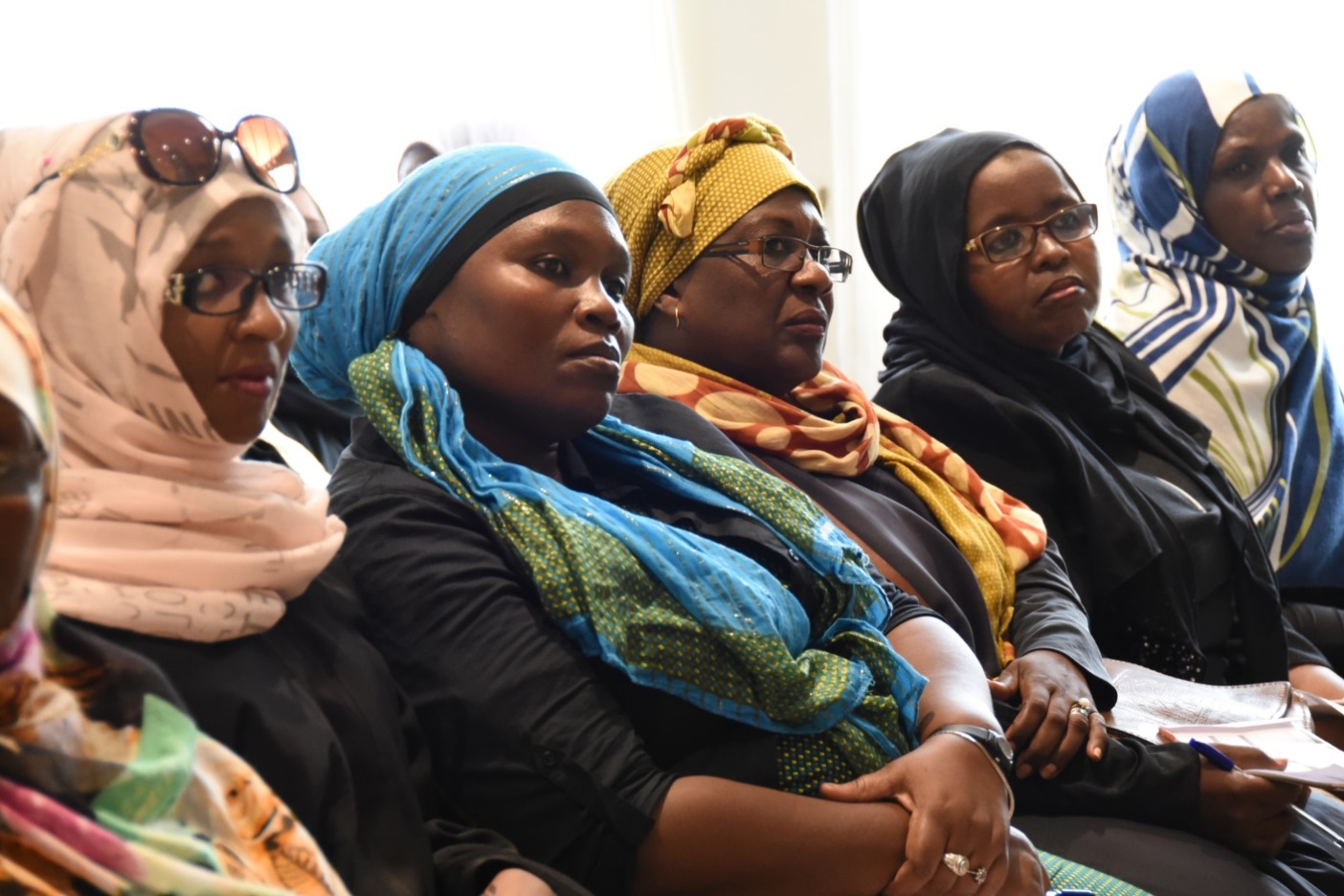Pushing for resilience to attain women leadership
Date:

In the last ten parliaments, Kenya has had a total of seventy five women, fifty of them elected while the other 25 were nominated. With an increase from 9.8% to 19% representation, Kenya is now ranked 76th of the top 100 countries in the World Classification of Women in National Parliaments.
As the country moves closer to the general election, the State Department of Gender Affairs through the support of UN Women in Kenya is conducting a series of countywide civic education sensitization that aims to strengthen the capacity of women to participate in the electoral processes both as candidates and as voters. The training targets Bungoma, Kisumu, Mombasa, Kwale, Kakamega, Nyeri, Eldoret, Kiambu, Kitui, Machakos, Turkana and Taveta counties in ensuring women are not sidelined in the electoral processes.
The civic education is intended to ensure that women have sufficient information, capacity and space to participate in the coming general elections. The civic education seeks to increase the understanding of women on political issues to enable them participate in political processes more effectively.
The training focused on five key areas that include: Need for more women in elective positions; Historical background of women in political leadership; Legal provisions on election; Campaign management of women aspirants and forging a way forward.
The Mzalendo report puts women representation countrywide in Parliament for both the National Assembly and Senate at 21%. Coast region is among those with low representation in terms of women leadership with all the elected members of County assembly of Mombasa from the last general election all being male with the only woman having been nominated.
Ms. Maimuna Mudao an aspiring candidate for the position of Women Representative, who has previously vied for elective position for the position of Member of Parliament, is optimistic that with the change in the dynamics since the first time she vied, the landscape is different.
“I have previously contested for the position of Member of Parliament (Kisauni), in Mombasa county in 2004 and 2007 and since then a lot has changed in terms of electoral processes, enactment of the new constitution, integrity issues and even the dynamics of voters as currently there is more awareness of gender issues which is a step towards the right direction for us as aspiring women leaders.”
Challenges women face:
According to Maimuna, if women can manage to have representation in the ward level of at least a third, then this will have a significant impact on the women at the grassroot level as formulated policies at the county level will be engendered.
To get as many young girls to go for the ward so my campaign is more of supporting the young girls at least even if we can get a third here (It would be great). It is unfortunate that two of the best women who were trained by UN Women and who by now would be forces to reckon with passed away.
She further points that political party’s plays critical role in ensuring that women are elected by offering them the required space to contest.
“At least one third of women leadership should have taken root from the political parties as this is where most women fail from and that has not happened. We have not seen political parties give room to women candidates at the party level so far and maybe this will change”
Maimuna attributes this to the general perception that the affirmative action has given women specific seats and therefore they do not need to contest for others. So when women contest for political seats more men would say that but you already have a seat. The argument doesn’t seem to reflect that this was just an affirmative action.
The dynamics of Mombasa as an urban area is different from the rural area as positions are on demand making it even more for difficult for women to vie for political positions. This is in addition to the harassments from the male counterparts facing those who wish to vie for elective positions. Sarah Wakoli, a registered aspirant for the position of Member of County Assembly (MCA)
Way forward:
Such sensitization trainings when well-targeted are effective as it is the same women who vote and also making them aware of the laws and legislations and the provisions of the constitution in as far as political leadership goes.
“The women need to understand that they need other women in elective position as it is only through their presence in leadership positions that laws and legislations touching on their daily life can be achieved and not me as a candidate benefiting myself.”
Sarah Wakoli, a registered aspirant for the position of Member of County Assembly (MCA) who attended the training highlighted the importance and need to have similar trainings as it offers a platform for aspiring women leaders and voters to come together to ensure that women leaders are elected countrywide.
“As much as there are challenges facing women including threats and harassment from our male counterparts, women need to be resilient and forge ahead as it is through participation in elective processes that will ensure women are included in leadership.” She explained.